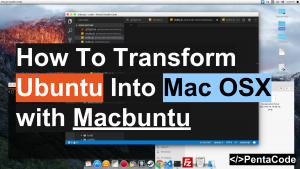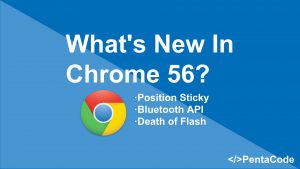It’s no secret how big of a fan I am of Visual Studio Code, I’ve written about about 7 reasons why I switched to Visual Studio Code from Sublime Text and My Visual Studio Code Setup, which are some of the most popular features on PentaCode. Late last year, I had an opportunity to interview Wade Anderson, Program Manager of the Visual Studio Code project at Microsoft. Below is my Q&A with Wade:
Can you tell us about yourself? How did you get involved with Microsoft & VSCode team?
Wade: I started on the VS Code team in December 2015. Before Microsoft I was at a startup called Novi Security. We were involved in the Microsoft business accelerator in Redmond, which is how I was introduced to my VS Code friends.
How was the VSCode project conceived?
Wade: The VSCode project grew out of the Monaco editor. The core team worked on the Monaco editor for many years. It was used in a variety of ways: Edge debug console, Azure, etc. The team saw the Electron shell and figured they could port Monaco to it.
What was the most challenging part about managing the VSCode project or team?
Wade: To be clear I am one of three program managers and my title is a bit of a misnomer as I don’t manage. My primary role is to work with customers in finding the right features to build and the direction to go with the product. The most challenging part is making good product investment decisions with a myriad of, sometimes conflicting, data points (customer interviews, online forums, GitHub issues).
For someone who’s interested in a new code editor, how would you convince him/her to trying VSCode?
Wade: VS Code is a tool that works for a certain style of development. VS Code is lightweight and fast, similar to other editors like Sublime Text and Atom. What separates VS Code is its integration with key language service and debugging features.
Traditionally you could not find code completion quality like VS Code’s unless you were in a full blown IDE. If you want a tool that is fast and lightweight but still has the code assistance and debugging features from an IDE, VS Code is the tool for you.
What are some of your favorite features or extensions?
Wade: IntelliSense tops my list. In my first coding class I used Notepad++ to write C++. It worked pretty well and I was able to learn the basics through much compile and error. One day someone showed me Visual Studio. I was amazed that I could see the methods on every single object. The code assistance changed my world! I learned the language so quickly from that point.
With VS Code I get Notepad++’s speed and a low memory footprint with the intelligent code assistance of a full blown IDE like Visual Studio. I feel comfortable jumping into new languages because of this. I have the API and the documentation right at my finger prints.
The rate of feature being pumped out are astonishing, are there any exciting upcoming features in the pipeline we should look forward to?
Wade: We are intensely invested in helping new users to the tool. As you can see in the published roadmap, “Improve the Getting Started Experience” is our first pillar. Helping users find quality extensions is also a key priority. We want VS Code to be lightweight, but at the same time we want you to personalize it for your own use. Building the extension ecosystem by helping authors will be a win-win for everyone.
I want to thank Wade for taking time to answer my questions and I also want to thank the entire VSCode team for continuously updating VSCode with amazing new features. You can reach Wade on Twitter at @waderyan_
You can also watch him in this excellent presentation of VSCode at UtahJS
If you enjoyed this interview, you may want to check out:
- 10 Visual Studio Code tips to boost your productivity
- 7 reasons why I switched to Visual Studio Code from Sublime Text
- My Visual Studio Code Setup
If you enjoyed this tutorial, make sure to subscribe to our Youtube Channel and follow us on Twitter @pentacodevids for latest updates!






